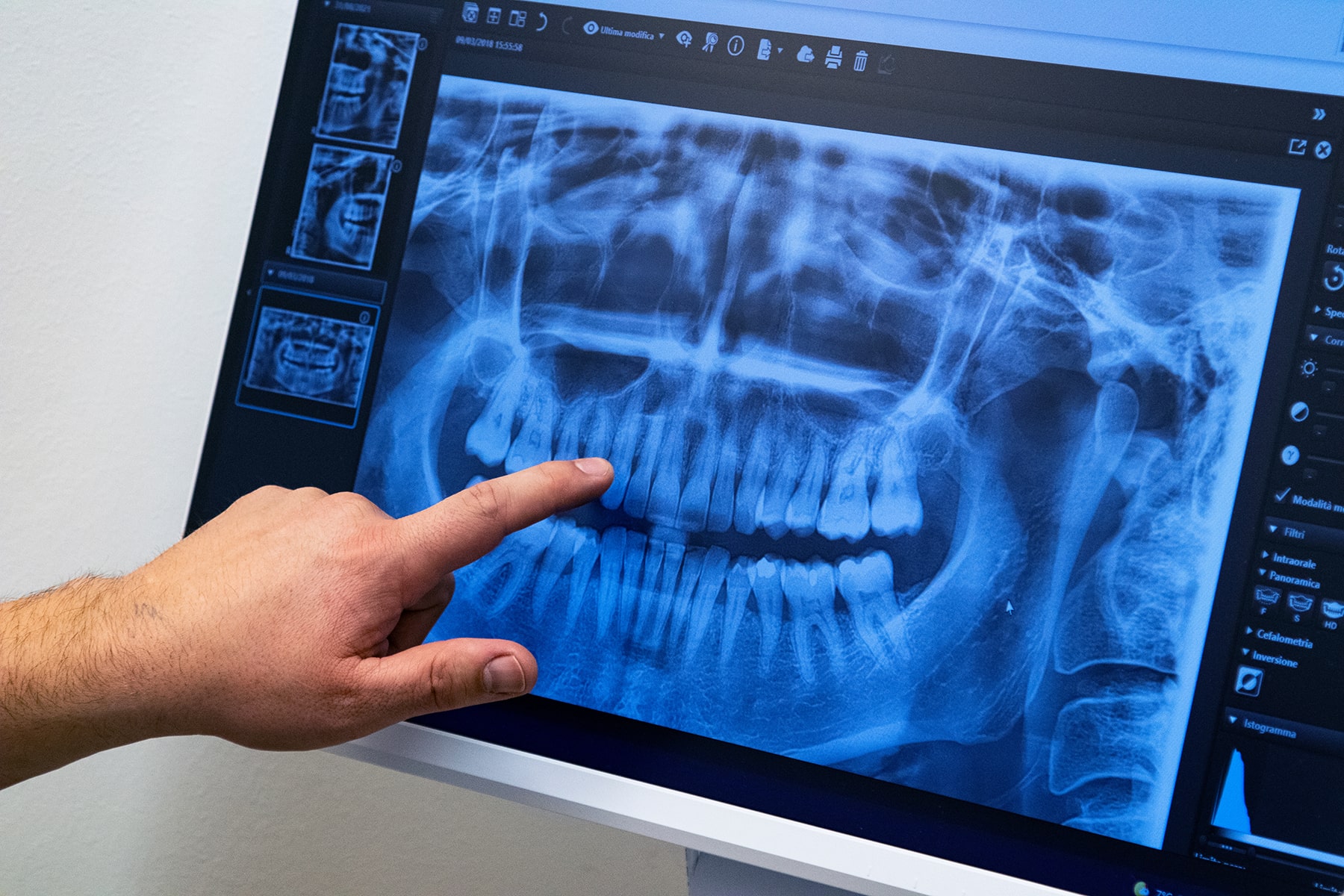Endodontics

Endodontics in Apex, NC
Untreated tooth decay can lead to serious complications, including infection, abscesses, and even tooth loss. When the decay reaches the pulp inside the tooth, it causes inflammation, pain, and sometimes swelling. At Tomasheski Family Dentistry, our endodontic care offers a solution that addresses infection or inflammation in the pulp to save and restore a natural tooth, ensuring long-term oral health.

What is Endodontics?
Endodontics is a specialized field of dental care focused on diagnosing and treating issues inside the tooth, particularly those affecting the tooth pulp and nerves. When the inner tissues become damaged or infected due to deep decay, trauma, or cracks, endodontic treatment—commonly known as root canal therapy—helps to remove the infected pulp, clean the area, and seal the tooth to prevent further damage. This treatment preserves the natural tooth, avoiding the need for extraction and restoring function and health.
What is Endodontics?
Endodontics is a specialized field of dental care focused on diagnosing and treating issues inside the tooth, particularly those affecting the tooth pulp and nerves. When the inner tissues become damaged or infected due to deep decay, trauma, or cracks, endodontic treatment—commonly known as root canal therapy—helps to remove the infected pulp, clean the area, and seal the tooth to prevent further damage. This treatment preserves the natural tooth, avoiding the need for extraction and restoring function and health.
Why is Endodontic Care Important?
- Prevents Further Infection And Tooth Loss: Endodontic care, like root canals, prevents the spread of infection and saves the natural tooth.
- Preserve Natural Tooth Structure: By treating the interior of the tooth, endodontics preserves the integrity of the natural tooth, avoiding extraction.
- Improves Long-Term Oral Health Outcomes: A treated tooth can last a lifetime with proper care, reducing the need for more extensive dental work.
Experience our unique approach to dentistry.
Schedule your visit today!
When is Root Canal Therapy Recommended?
Dentists recommend root canal therapy when the tooth pulp becomes infected due to deep decay, trauma, or a cracked tooth. It is essential to prevent the spread of infection and save the tooth from extraction.
What are the Signs of a Root Canal Problem?
- Severe tooth pain or sensitivity
- Prolonged pain to heat or cold
- Gum swelling or tenderness near the affected tooth
- Darkening or discoloration of the tooth
- Presence of a dental abscess
What to Expect During Root Canal Treatment
- Initial Consultation and X-rays: The process begins with an exam and X-rays to accurately diagnose the issue. Our team of dentists will evaluate the extent of the infection or damage to the tooth pulp to determine if root canal therapy is right for you.
- The Root Canal Procedure:
- Numbing the Tooth: Local anesthesia is used to ensure the area is completely numb.
- Accessing the Tooth Pulp: The dentist creates a small opening to reach the infected pulp.
- Cleaning and Disinfecting: Using specialized tools, the dentist carefully cleans and disinfects the root canals.
- Filling and Sealing: Once clean, the canals are filled with a biocompatible material and sealed to prevent reinfection.
- Restoration: Typically, the tooth is restored with a crown to strengthen and protect it for long-term function.
When is Root Canal Therapy Recommended?
Dentists recommend root canal therapy when the tooth pulp becomes infected due to deep decay, trauma, or a cracked tooth. It is essential to prevent the spread of infection and save the tooth from extraction.
What are the Signs of a Root Canal Problem?
- Severe tooth pain or sensitivity
- Prolonged pain to heat or cold
- Gum swelling or tenderness near the affected tooth
- Darkening or discoloration of the tooth
- Presence of a dental abscess
What to Expect During Root Canal Treatment
- Initial Consultation and X-rays: The process begins with an exam and X-rays to accurately diagnose the issue. Our team of dentists will evaluate the extent of the infection or damage to the tooth pulp to determine if root canal therapy is right for you.
- The Root Canal Procedure:
- Numbing the Tooth: Local anesthesia is used to ensure the area is completely numb.
- Accessing the Tooth Pulp: The dentist creates a small opening to reach the infected pulp.
- Cleaning and Disinfecting: Using specialized tools, the dentist carefully cleans and disinfects the root canals.
- Filling and Sealing: Once clean, the canals are filled with a biocompatible material and sealed to prevent reinfection.
- Restoration: Typically, the tooth is restored with a crown to strengthen and protect it for long-term function.

Tips for a Successful Root Canal Recovery
- Managing Discomfort: After the procedure, it’s normal to experience mild discomfort. Over-the-counter pain relievers like ibuprofen or acetaminophen can help manage this. Avoid chewing on the treated tooth until it is fully restored.
- Maintaining Oral Hygiene: Continue brushing and flossing regularly, especially around the treated area, to prevent future infections.
- Follow-up Visits: We will schedule follow-up appointments to monitor healing and ensure the tooth is properly restored, typically with a permanent filling or crown.
- Protecting the Treated Tooth: A crown or filling helps reinforce the tooth, but it’s important to avoid hard foods or excessive pressure on the tooth until it’s fully healed. Proper care will ensure the longevity of the restored tooth.

Tips for a Successful Root Canal Recovery
- Managing Discomfort: After the procedure, it’s normal to experience mild discomfort. Over-the-counter pain relievers like ibuprofen or acetaminophen can help manage this. Avoid chewing on the treated tooth until it is fully restored.
- Maintaining Oral Hygiene: Continue brushing and flossing regularly, especially around the treated area, to prevent future infections.
- Follow-up Visits: We will schedule follow-up appointments to monitor healing and ensure the tooth is properly restored, typically with a permanent filling or crown.
- Protecting the Treated Tooth: A crown or filling helps reinforce the tooth, but it’s important to avoid hard foods or excessive pressure on the tooth until it’s fully healed. Proper care will ensure the longevity of the restored tooth.

Schedule a Root Canal Appointment in Apex, NC
If you’re experiencing symptoms that may require a root canal or if you’ve been advised to seek endodontic treatment, we invite you to schedule a consultation at Tomasheski Family Dentistry in Apex, NC. Our team will guide you through every step of the process, ensuring your comfort and delivering exceptional care.

Schedule a Root Canal Appointment in Apex, NC
If you’re experiencing symptoms that may require a root canal or if you’ve been advised to seek endodontic treatment, we invite you to schedule a consultation at Tomasheski Family Dentistry in Apex, NC. Our team will guide you through every step of the process, ensuring your comfort and delivering exceptional care.

